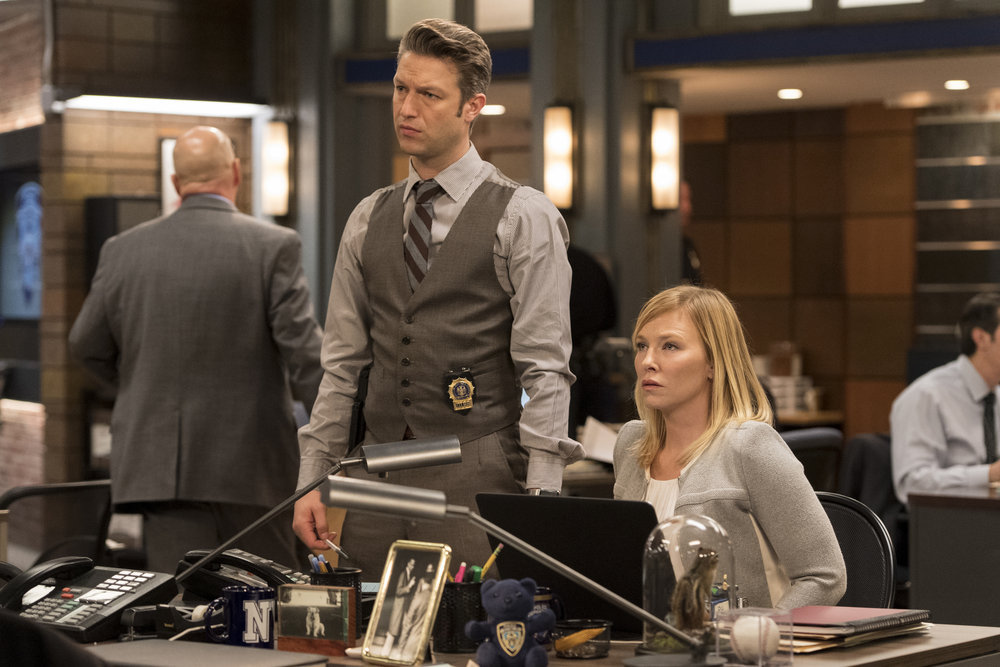CW: police violence, sexual assault
Somehow, shows about cops have become so pervasive they are now an entire genre. Many of America’s favorite shows—Law and Order, Law and Order: SVU, Cops, Brooklyn Nine-Nine, Chicago P.D., The Wire, Bones, even Psych—feature law enforcement in some way. And these cops aren’t just brave. They’re dependable, they’re loveable, they’re funny, and most of all, they’re the good guys. They risk their lives to save suspects and they are skilled de-escalators. All cases are solved, and criminals (who are very clearly guilty) are put away. Here’s a 45-minute package of justice, delivered right to your laptop screen! Enjoy!
But these cops—the ones whose faces might come to mind when I say “police officer”—they’re not who arrive when you call the police. While shows like Cops boast storylines that end in arrest nearly 85 percent of the time, less than half of the violent and property crimes that occur in the U.S. each year are even reported to the police, and less than half of those end in the arrest and charging of a suspect. Even though the police arrested over ten million people in 2016, only five percent of those were for the kind of violent offenses T.V. shows depict.
To avid watchers of crime dramas (of which there are a lot, crime shows make up about a fifth of all scripted network shows for any given season), these statistics may seem surprising. Episodes aren’t over until a perpetrator has been caught and brought to court (in fact, after watching several seasons of Law and Order: SVU, I can guess how many minutes are left in an episode simply by seeing how far into the investigation the team is), and if a crime goes unsolved, it’s an anomaly. It eats at the characters; after all, they always catch the perpetrator, so when they don’t, they feel they’ve done something wrong.
SVU is an especially misleading case of this. While defenders of the police often cite sex crimes as one of the primary reasons police are necessary to society, in reality, only five out of every 1,000 perpetrators of sexual assault are ever convicted. Part of this is because only 23 percent of these assaults are reported, though a widespread belief that reporting will be a traumatic experience that does not actually lead to justice for survivors makes this number unsurprising. Of those reported, less than a quarter result in arrest, and less than a fifth of those are even referred to prosecutors. So the standard SVU show structure, in which all reported assaults at least make it to the District Attorney’s desk, isn’t even close to what’s happening in most departments.
If you realize this disparity as you watch these shows, you might be able to see them for the hopeful fiction they are. But, according to the Pacific Standard, as many as 40 percent of Americans who watch these shows believe they are very or somewhat true to real life. Those same people “view police as better behaved, more successful at combating crime, and relatively responsible in their use of force,” compared to those who don’t consume many hours of crime drama content.
One reason crime dramas are able to so drastically impact the perceptions of Americans compared to, say, buddy comedies or medical dramas, is that the majority of Americans do not have contact with the police each year. In 2015, the most recent year the Bureau of Justice Statistics released information, only 21.1 percent of citizens over the age of 16 made contact with the police. About half of that was police initiated, mainly through traffic stops. Only eight percent of Americans make contact with the police each year in the context of reporting a possible crime or being arrested. If everyone was equally likely to experience these interactions, the average American would only make contact with the police in the context of a crime once every 12.5 years. In reality, we know one interaction with the police, especially an arrest, is likely to predict another interaction, so an average American (especially a white American) makes even more infrequent contact with the police in the context of a crime.
Cops, a “reality crime show” that was cancelled in June following a new surge of criticism after George Floyd was killed by Minneapolis police officers, presents a perfect case study of the world being presented to these Americans who do not interact with the police. The show, which, again, is presented as a real documentary, overrepresented serious crimes to an astounding magnitude. The show depicts four times more violent crimes, three times more drug arrests, and ten times more arrests for sex crimes than a normal police department would handle. Cops was previously criticized for frontloading crimes that were committed by people of color. In response, the show began airing more crimes committed by white people—by moving to Portland, Oregon.
Most concerningly, police departments were given editorial control of rough cuts of the show.
Though Cops and Live P.D. have been cancelled, a significant number of scripted crime dramas continue to be aired. While showrunners may begin to respond to critiques of police departments across the country with more honest portrayals, the make-up of behind-the-camera staff suggest most shows lack an understanding of the disparate racial impacts of policing. A Color of Change study of 26 scripted crime dramas found that 81 percent of showrunners were white men, and 81 percent of the writers were white. Only nine percent of writers are Black, and 20 of the 26 shows had one (or less) Black writer.
As Americans demand more drama and more violence from their shows, it shouldn’t be surprising that the shows, largely run by white men, are willing to comply. While this might make for good entertainment, especially if you’re a sucker for a chase scene, it creates pervasive misconceptions of who the police are and what they do. Hollywood shows us what we get from law enforcement at its best, but that best is a mere hypothetical.
Having an honest conversation about the role of policing in the U.S. means being honest about what those police do. Shows should assess the statement they are making about law enforcement, but we should also remember that no matter what changes they make, they are not an exact replication of any police department and should not be taken to be so. If you want to be entertained, grab some popcorn and turn on one of these shows, though consider what it means for you to do so. If you want to be informed, listen to the experiences of people who have actually had significant interactions with the police.




